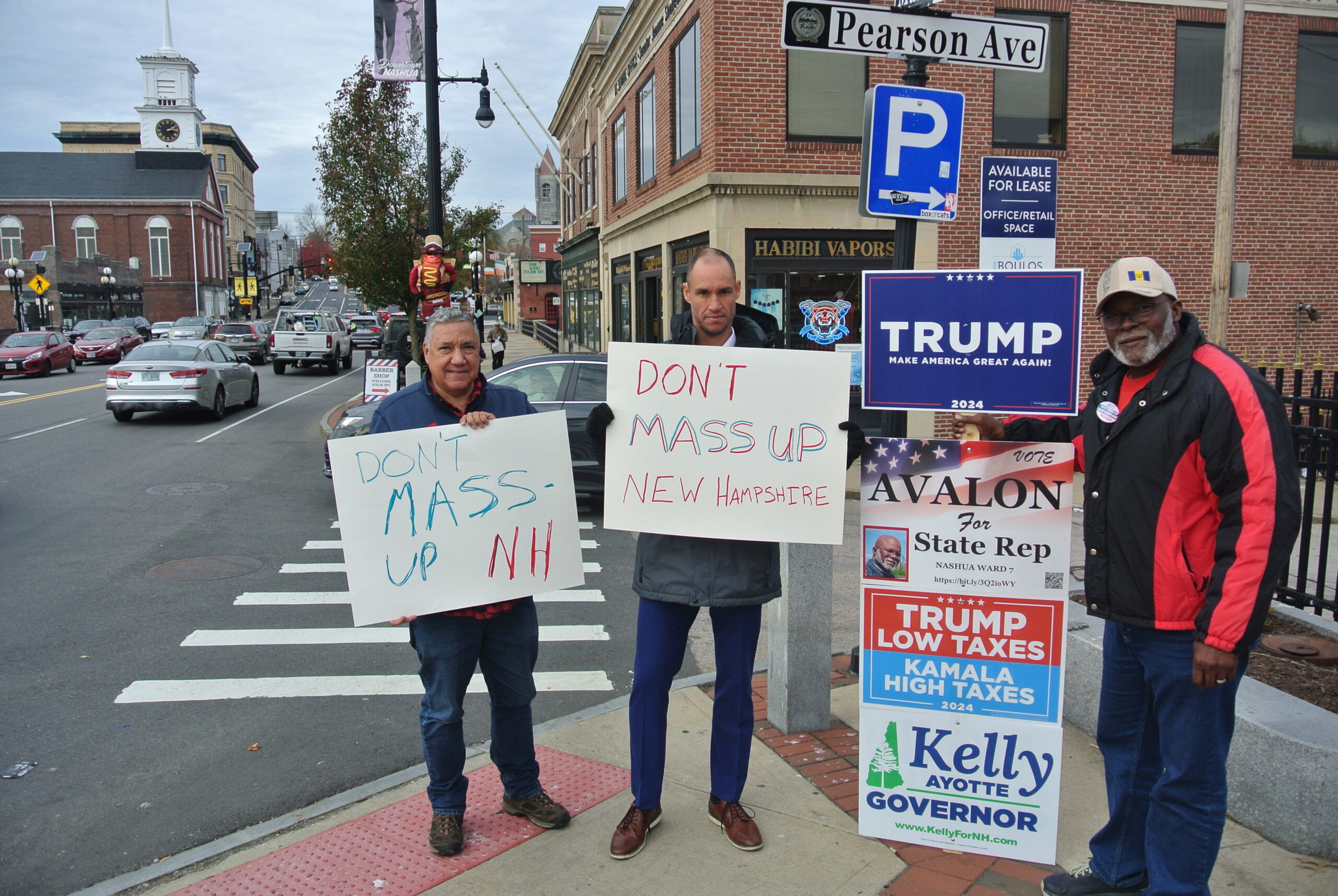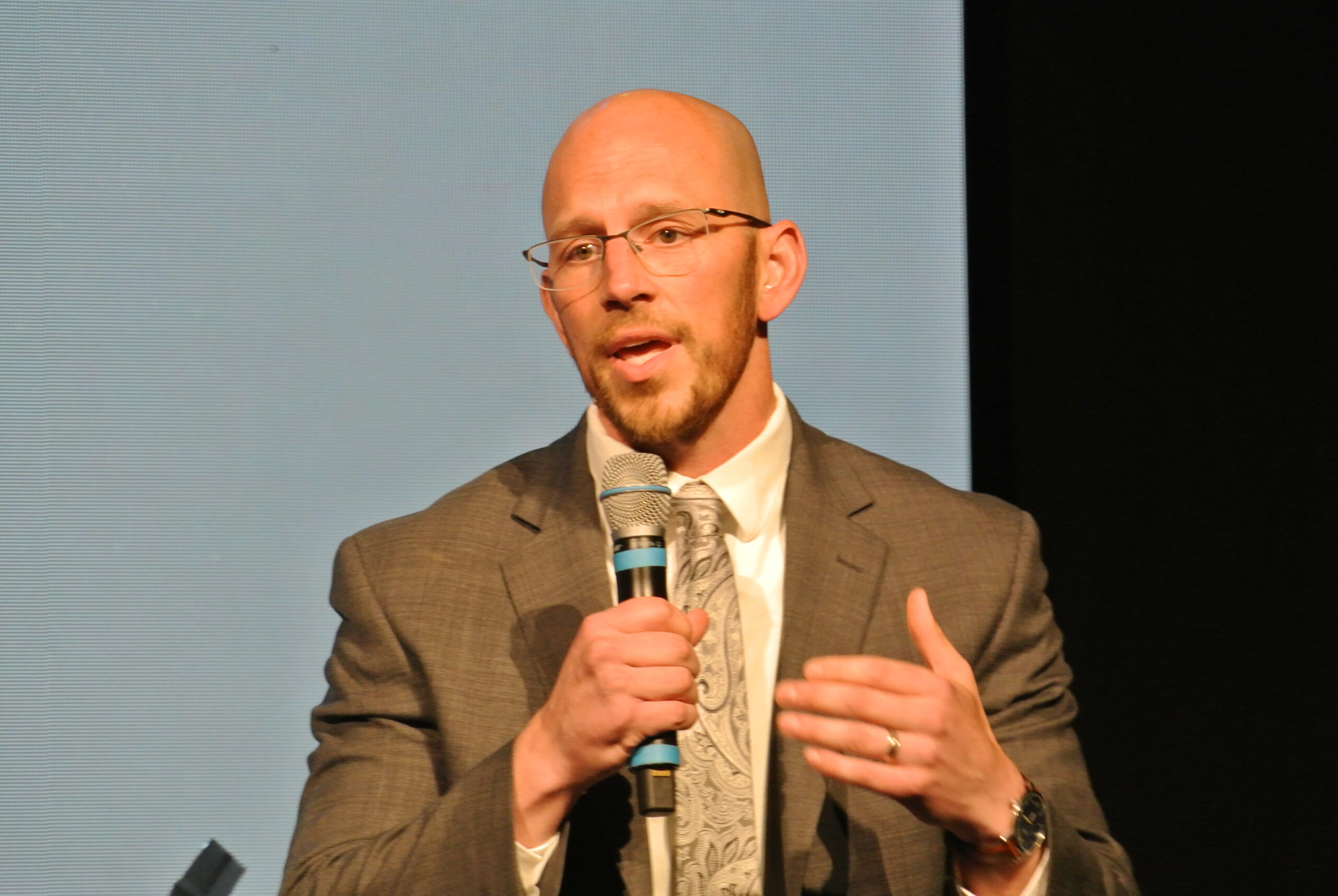Craig Closes Campaign With MA Gov; Ayotte Sticks With Sununu

On the last day of campaigning, Republican Kelly Ayotte was out on the road with New Hampshire Gov. Chris Sununu, making stops at grocery stores and pizza shops.
Democrat Joyce Craig, on the other hand, held three closed-door events with progressive Massachusetts Gov. Maura Healey, a frequent campaign sidekick of Craig’s. The two even took a road trip to the West Coast to raise money from liberal Democrats in Berkeley, Calif.
“Craig has welcomed Healey’s backing,” the liberal Boston Globe reported Monday.
It’s a political partnership the Ayotte campaign is happy to talk about in the final hours of the campaign.
“Joyce Craig wants to raise taxes by $160 million and spends her time campaigning with Maura Healey,” Ayotte campaign spokesman John Corbett said in a statement. “If you didn’t know better, you’d think she’s running to be governor of Massachusetts, not New Hampshire.”
From the beginning of her bid for governor, Ayotte has embraced the slogan “Don’t MASS Up New Hampshire.” It’s a message that appears to resonate with voters. In a recent UMass Lowell poll, 55 percent of Republicans say the Granite State is “at great risk” of becoming too much like Massachusetts in the next 10 years.
So, Team Ayotte was more than happy to send its candidate with Sununu to Alley Cat Pizzeria in Manchester and the Market Basket in Hooksett, while Craig campaigned with Healey in Exeter, Manchester, and Nashua.
 When a NHJournal reporter showed up at the Healey event in Nashua on Monday, he was told it was a “closed event.” Outside, a small group of Republicans waved “Don’t MASS Up New Hampshire” signs, inspiring honks and thumbs up from passing drivers.
When a NHJournal reporter showed up at the Healey event in Nashua on Monday, he was told it was a “closed event.” Outside, a small group of Republicans waved “Don’t MASS Up New Hampshire” signs, inspiring honks and thumbs up from passing drivers.
Among the sign wavers was New Hampshire GOP chair Chris Ager.
“Why not campaign with — and for — Granite Staters?” Ager asked as he stood outside. “Not only was the Massachusetts governor campaigning for Craig, most of the cars in the parking lot were from Massachusetts, too. Who will Joyce Craig owe if she wins?”
During their campaign stop in Manchester, Ayotte and Sununu were asked about Craig wrapping up her race with Healey.
“You have to wonder, why do you (Craig) have so many events with the governor of Massachusetts?” Ayotte asked. “I just came from knocking doors in Ward 6, talking to independents and other voters. You have to be ready to talk to any voter. That’s what this is all about: earning their support.”
Sununu jumped in, too.

“Kelly spends 100 percent of her time talking to people from New Hampshire because that’s what matters. Joyce Craig, on the other hand, spends all of her time with people from Massachusetts and New York.”
Asked about the mood of the electorate, Sununu said there is excitement among Republican voters, “and it’s absolutely palpable.”
“When you knocked on the doors, say, a month ago, a lot of folks weren’t opening their doors. It’s like it was almost too far from the election.
“But with Kelly out knocking on doors, they’re opening the doors. The people we talk to are independent, and they’re excited. Whether it’s Manchester, Nashua — everybody is coming out. There’s going to be really high turnout. But the energy, specifically among Republicans for these races, is very real.”
And Sununu believes Republicans are going to have a good night, too, predicting a win for the GOP in the races for governor, control of the state legislature, and the Executive Council. And, he says, the numbers are good for Trump in New Hampshire as well.
“I look at 2016 because I think that’s more of a comparable race to today,” Sununu said. “They’re all leaning the Republican’s way. So, give me Trump’s poll numbers, which are definitely closer today than they were in 2016.”
Ayotte wasn’t prepared to make a grand declaration.
“I’m just going to work to earn every vote. Just keep working.”












